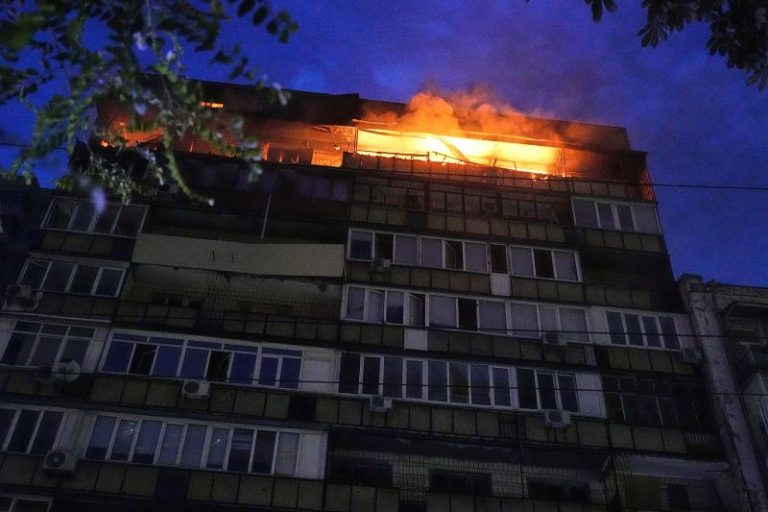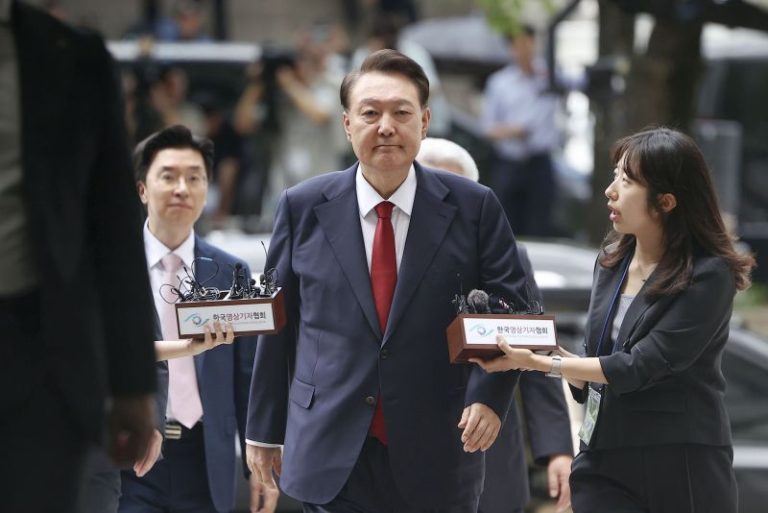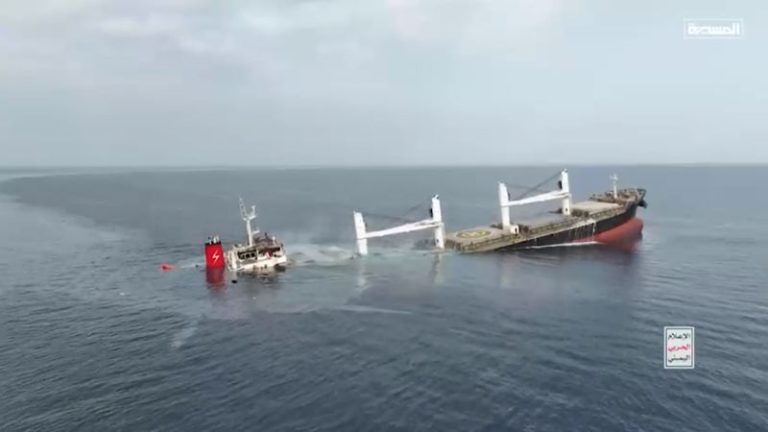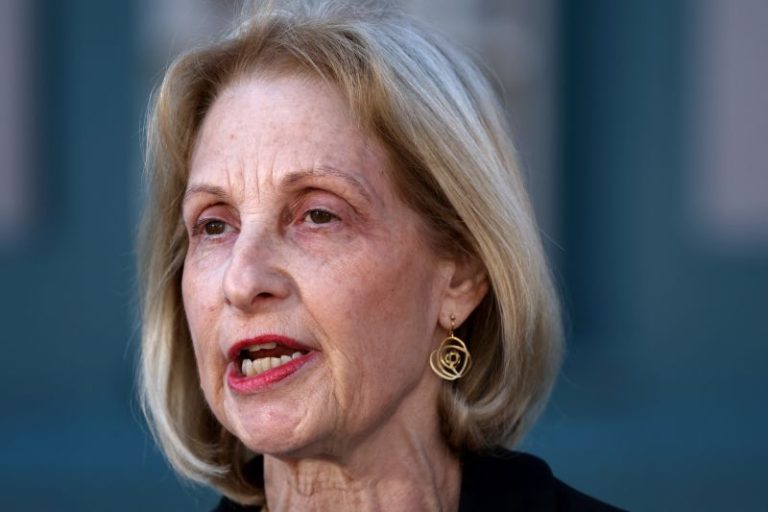Russia launched a large-scale aerial assault on Ukraine’s capital Kyiv in the early hours of Thursday, marking a second consecutive night of ferocious attacks on the country, as Russia ramps up its bombardment more than three years into the war.
At least two people were killed and more than a dozen were wounded in Thursday’s attacks, which involved multiple drones and cruise missiles, according to Kyiv authorities.
The offensive comes one night after Russia conducted its largest drone assault since the start of its full-scale invasion, launching 728 drones and 13 missiles in strikes that killed at least one person, according to Ukrainian officials.
The damage on Thursday morning appeared to be substantial. Residential buildings, cars, warehouse facilities, offices and other buildings were on fire across the city, Tymur Tkachenko, head of Kyiv’s military administration, said.
Tkachenko urged residents to stay in shelters and avoid windows and balconies, as Ukraine’s air defense systems worked to repel the attack.
“Property can be restored, but human life cannot,” Tkachenko said.
Russia has significantly scaled up its air attacks on Ukraine in recent weeks, launching near-nightly assaults involving hundreds of drones and missiles.
Work towards a peace deal has simultaneously slowed down, triggering frustration in the White House, where US President Trump on Tuesday took aim at Russia’s leader Vladimir Putin.
“We get a lot of bullsh*t thrown at us by Putin, if you want to know the truth,” Trump said in a Cabinet meeting. “He’s very nice all of the time, but it turns out to be meaningless.”
Russia’s sustained assault in recent days has injected new urgency into questions surrounding Washington’s commitment to defending Ukraine, as the Trump administration pledged to send additional defensive weaponry to Kyiv in an apparent policy reversion.
Moscow downplayed Trump’s harsh words in a press briefing Wednesday. A Kremlin spokesperson said it is reacting “calmly” to Trump’s criticism of Putin. “Trump in general tends to use a fairly tough style and expressions,” Dmitry Peskov said, adding Moscow hopes to continue dialogue with Washington.
US Secretary of State Marco Rubio is expected to meet his Russian counterpart Sergey Lavrov on the sidelines of the ASEAN summit in Malaysia on Thursday.
Following Wednesday’s record drone attack, Ukraine’s President Volodymyr Zelensky said there had been “so many attempts to achieve peace and cease fire, but Russia rejects everything.”
International law violations
Thursday’s attack on Kyiv follows a landmark ruling by Europe’s top human rights court Wednesday, which found that Russia committed major international law violations in Ukraine.
The European Court of Human Rights (ECHR) ruled on four cases concerning Russian military operations in Ukraine since 2022, as well as the conflict in eastern Ukraine which began in 2014 and includes the downing of Malaysia Airlines flight MH17.
It found that Russia had committed a pattern of human rights violations in Ukraine since the start of its full-scale invasion in February 2022.
The ECHR also ruled Russia was responsible for the downing of flight MH17 in 2014. Moscow has repeatedly denied responsibility for MH17’s destruction, which killed 298 people.




